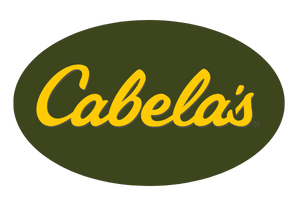Survival 101 ⌖

Adapt. Improvise. Survive.
Survival 101 teaches you how to stay alive when things don’t go to plan. This immersive weekend course focuses on short-term wilderness survival using limited tools, natural resources, and critical thinking. From emergency shelter building and firecraft to signaling, navigation, and mental preparedness, you’ll learn how to manage real-world survival scenarios with confidence.
It’s not just about gear—it’s about mindset, improvisation, and knowing what to do when the stakes are high and time is short.


Course Overview
This two-night course begins Saturday morning with a hike into our survival training site. The weekend includes scenario-based training and hands-on instruction in shelter building, fire starting under pressure, emergency water procurement, and signaling techniques. We’ll also cover tool improvisation, navigation without a compass, and basic first response in the field.
You’ll camp in improvised shelters, ration your gear, and operate under realistic survival conditions—building grit, awareness, and the ability to problem-solve in the wild.

$289.99
Includes instruction + all group materials
Detailed pre-trip gear + packing list
Camping + post-course field notes

What You’ll Learn
Survival 101 focuses on doing more with less. You’ll learn how to prioritize needs, assess risk, and make quick, informed decisions in the field. Skills covered include emergency shelter construction, low-resource firecraft, water sourcing and purification, basic signaling, land navigation without tools, and gear improvisation using what’s on hand.
The course also emphasizes survival mindset—staying calm, thinking clearly, and working smart when it matters most.


Emergency Skills First
Focuses on the critical 72-hour survival window—shelter, fire, water, signaling, and safety under pressure.

Scenario-Based Training
Learn through realistic, stress-tested survival scenarios designed to build instinct and fast thinking.

Gear-Light, Mindset-Heavy
Train with limited tools and improvised methods to develop true adaptability in any wilderness situation.

Emergency fire and shelter in real conditions
Low-tech water purification and sourcing
Improvised tools and bush fixes
Signal fire, mirror, and ground-to-air signaling
Mental preparedness and survival priorities
Two nights camping with minimal gear

What to Expect
This course is immersive, challenging, and built around the principles of survival. Expect to hike, build, adapt, and problem-solve in a dynamic wilderness setting. You’ll be outdoors from start to finish, sleeping in improvised shelters, working with minimal tools, and developing a strong survival mindset.
This is not a luxury campout—it’s practical, stripped-down training for real-life scenarios. Come ready to push your limits and grow.

Survival 101 FAQ
Wondering how this differs from Bushcraft 101 or what to pack for a survival-focused weekend? Here’s what folks usually ask:
Do I need experience to attend?
Nope. This course is designed for beginners and intermediate learners. We’ll teach you everything you need to know, step-by-step.
How is this different from Bushcraft 101?
Survival 101 focuses on short-term emergency situations with limited gear. While bushcraft is about long-term living and comfort, survival is about fast decision-making and staying alive with what you’ve got.
What will we be eating?
You’ll bring basic rations, but we’ll also cover emergency water procurement and fire-based cooking methods. Some food prep will be part of the training.
Is this physically demanding?
It can be. You’ll be carrying a pack, building shelters, and moving through the terrain. A moderate fitness level is recommended.
What happens if the weather turns bad?
That’s part of the training. We’ll adapt to conditions just like in a real survival situation. The course only pauses for severe safety risks.
What should I pack for this course?
You’ll receive a detailed gear list after registration, but expect to bring a survival kit, basic layers, a sleeping system, and minimal food. We’ll focus on working with limited supplies, so packing light—and smart—is part of the challenge.






